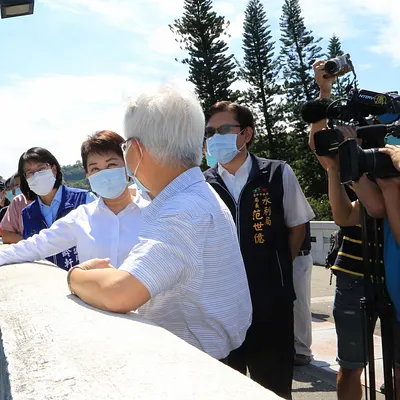首頁 新聞 年度網路自由報告》中國防火牆世界最嚴格!連6年被認證「全球最差」國家
年度網路自由報告》中國防火牆世界最嚴格!連6年被認證「全球最差」國家 「自由之家」14日公布年度網路自由報告,中國連續第6年被列網路自由最差國家。報告指出,中國的長城防火牆是世上最嚴格的數位防禦邊界,控制進出中國的網路資訊。
人權組織「自由之家」(Freedom House)14日公布年度網路自由報告(Freedom on the Net),調查全球65國網路自由情況。台灣不在調查之列。
報告指出,全球網路自由情況已連續10年呈現下滑。2019冠狀病毒疾病(COVID-19,武漢肺炎)更加劇網路自由下降情況,許多國家利用疫情機會擴大網路監控、收集數據、審查批判性言論,並藉此建立新的科技社會控制體系。
報告指出,許多國家並未保護網路使用者,反而更積極鎮壓人權,無視民間與國際社會的反對。中國是其中的佼佼者,連續第6年成為全球網路最不自由國家,長期封鎖受歡迎的外國服務商,並透過集中化科技基礎設施,以對進出中國的所有流量進行全面監控與過濾。
今年報告中,冰島再次名列最自由國家,其次為愛沙尼亞、加拿大,美國排名第7。敘利亞、伊朗和中國分列最差3國。
更多新聞請搜尋🔍風傳媒
目前贊助金額 NT. 9.76K
想要一起表達支持這篇文章?
贊助文章
更多文章
鳥類無國界》台灣鳥人當自強!公民熱血連結世界,貢獻國際鳥類資料庫 歷經更名風波,中華鳥會在9月下旬的會員大會中,投票決定將英文名稱正式從「ChineseWildBirdFederation」(CWBF)更改為「TaiwanWildBirdFederation」(TWBF),以台灣之名面對國際。不過依據法規,社團法人更改中文名稱地申報程序複雜,因此暫時不會更動。副秘書長呂翊維難掩雀躍地說,英文名稱改為Taiwan後,在國際上大大加強了識別度,反而為組織帶來益處,很多外籍鳥友都是台灣女婿,也都十分樂見這種改變。
金融業唯一,永豐光鐸獎5連霸 誓言打造綠電大平台 永豐銀行力推綠色金融生態圈,14日獲經濟部能源局頒發「光鐸獎-優良金融服務獎」,成為自2016年起、唯一連續5年獲頒光鐸獎肯定的金融業者。永豐銀行執行副總經理莊建發表示,永豐銀行以實際行動呼應政府2025年再生能源佔比20%目標綠能政策,並創新發展三大融資渠道助攻乾淨能源。至今(2020)年9月底,融資合作太陽能電廠約4,360座、總發電量逾1.3GW(百萬瓩),明(2021)年可望挑戰累計1座核能電廠裝置容量,積極打造創能、節能、儲能、金融四合一的一站式綠電大平台服務,力挺政府、產業齊力推動能源轉型、邁向永續家園。
第2波新冠疫情「打游擊戰」 陳秀熙透露加速群體免疫用這招 海外新冠肺炎(武漢肺炎)疫情持續延燒,截至14日全球確診人數已超過3800萬人,108萬人死亡。台大公衛教授陳秀熙表示,目前疫情已進入第2波流行,並將以突發、以打游擊戰的游擊式流行為主,在不同地區爆發,預估下周確診人數可能突破4000萬,115萬人死亡。
貸款借錢買保單是我的自由,為什麼金管會規定這麼「囉嗦」? 最近常看到有保險公司或銀行,因不當勸誘客戶用銀行貸款或保單借款來購買保險,遭金管會處罰的新聞。而今年以來,保險局裁罰違規的最大宗就是「勸誘借錢買保單」。許多人就有疑問,現在到底還能不能以貸款買保單?(延伸閱讀:金融業上半年吞逾9,000萬元罰單,保險業就佔近一半)一般而言,透過金融機構借款滿足投資或消費需求,是民眾應有的理財自由,政府機關通常不予以限制。但因保險交易涉及複雜的商品結構,加上定型化契約產生的交易不對等關係,主管機關才會對保險交易訂有較多規定,以保護消費者權益。金管會因處理大大小小的消費爭議申訴案件,自然很容易發現保戶若以借錢方式買保險,在沒有被充分告知與說明風險的前提下,會衍生許多問題。
風評:北京綁架台灣人質,蔡政府營救束手無策 美國總統大選之前,蔡英文總統雙十國慶演說之後,中國《中央電視台》從十月十一日起一連三天在晚上黃金時段的〈焦點訪談〉報導「台諜案」,號稱「二○二○迅雷行動」,內容指控屏東縣枋寮鄉政顧問李孟居參加香港反送中運動後,進入深圳拍攝武警集結照片遭拘捕;在捷克任教的台籍學者鄭宇欽迂迴在海外展開情報滲透,挑撥中國與他國關係;南台灣兩岸關係協會聯合會主席蔡金樹、台灣師範大學退休副教授施正屏兩位學者,則向大陸學者約稿並轉給我國防部軍情局,混入研討會刺探中國大陸內部情報。
齊心抗疫堅守崗位 台灣人壽感謝醫護及長照工作者,邀請看劇 新冠肺炎疫情期間,台灣醫護人員及長照工作者仍堅守崗位,為民眾提供專業的醫療照顧或持續前往有長照需要的長輩家中服務,以免因服務中斷,造成長輩病情惡化或家屬找不到幫手而手足無措之窘境。為感謝醫護及長照工作者,在台灣疫情逐漸緩解後,中國信託金融控股公司旗下子公司台灣人壽保險股份有限公司(簡稱台灣人壽)邀請逾千位醫護及長照工作者到劇院,觀賞由全民大劇團所演出的「同學會!同鞋~」舞台劇,同時也以行動支持疫情緩解後的藝文表演,贊助此部舞台劇北中南共七個場次的演出。
陳國祥觀點:台灣的香港牌與美國的台灣牌 台灣和香港真是命運連動體。先不說透過一國兩制的規劃,北京將台港圈為一體;光是說港人在台殺人案,台灣先以司法互助理由,要香港把嫌犯送到台灣受審;香港政府積極回應,訂了一個逃犯條例,順便把中國大陸帶進場,讓內地和香港之間相互也可以移送逃犯,不料引起「反送中」大海嘯;選情低迷的蔡英文趁機將反中巨浪引進台灣,沖垮國民黨選情,香港的助攻立下大功,港人對於口口聲聲「撐香港」的民進黨政府感激涕零,寄望深深。不料一些港人投台無門,所謂人道待遇只是聊勝於無;至於引發海嘯的陳同佳多次表示願意赴台投案,也不得其門而入,兩地政府還為此吵翻天。
陳朝平觀點:何不啟動記名式戰爭公投? 前不久,新聞報導,國防部擬擴編後備旅。今天,又有官員證實,教召列管年限,將由8年延長為12至17年內未除役的後備軍人,以充實後備部隊軍官缺額與高階專長兵力
吳典蓉專欄:反戰為何成為全民公敵 作家龍應台日前提出反戰主張,引來網軍及一些評論者的攻擊,詭異的是,台灣現階段即使不是人人喊戰、甚至不到「戰難和亦不易」的處境,但提醒戰爭風險的聲音卻成為眾聲喧譁中執拗的低音,而且注定成為輸家!因為戰爭與和平在台灣已成為一場囚犯賽局!
觀點投書:當印度慶祝中華民國生日 日前中國國民黨立法院黨團提案台灣和美國復交、美軍協防台灣安全等,在整個立法院無異議通過這項決議案時,我還是不經要呼籲一件事情,身為全球人口最多的民主國家印度,中國國民黨應該要跑得比民進黨前面,民進黨如果押寶美國,我們中國國民黨應該要押寶印度。身為基層小黨員的我,一直希望中國國民黨可以找回當時蔣介石還在世時,和印度積極往來的時期,徹底拋棄所謂的九二一中共識、強化大家比較席的臺印交流、或者中印交流。
第一次買房,小心裝潢四大誤區!燈光、廚房這樣設計超母湯 買房想裝潢佈置新家,然而部分不實用的設計卻可能成為裝潢誤區,專家表示,像是不少年輕族群因為受到西方文化影響而規劃開放式廚房,然而卻未改變烹調方式,造成油煙漫天,還有氣氛柔和的間接照明也是許多人喜愛的設計,但忽略層板間容易藏灰塵,難以清潔等問題,反而造成設計美,但使用效益較低的狀況。
觀點投書:這些教育政策如果誕生在威權年代該多好 教育部於八月份頒布最新教師輔導與管教學生辦法注意事項中,第二十二條規定除特殊情況外,教師不得於下課時間管教學生,這項「惠我良多」新行政命令,學生樂觀其成,家長似乎嘩然,老師們則啞然無言,究竟怎麼回事呢?
觀點投書:兩岸關係急速惡化,無益於我國處境 近期中國戰機頻繁穿越海峽中線,已經到了幾乎每天都越線騷擾的情況,使得我國空軍必須緊急升空防衛,並且隨時處在待命的狀態,陸續從八月中美國衛生部長訪台到八月底的捷克參議院長訪台,再到九月中的美國亞太助卿訪台,種種情況都是在挑戰中國的敏感神經,迫使中國需要以更進一步威嚇的方式來嚇阻我國。
觀點投書:川普就是「美國版韓國瑜」,台灣人竟敢生死相託? 韓國瑜是2019年「台派寒流」,險將台灣國運帶入險峻寒冬,好不容易在2020年總統大選及6月6日市長罷免兩場選戰將其逐出政治舞台。川普的行徑、言詞和韓國瑜無異,兩人的政治人格簡直就是孿生兄弟,既然至少817萬台灣人民對韓國瑜深痛欲絕,怎麼一轉頭就成了川普的鐵衛軍?對出普的空頭支票深信不疑?
唐納摧毀我的父親,我不能讓他摧毀我的國家:《永不滿足》選摘(2) 1994年一部根據瑪麗.雪萊小說《科學怪人》改編的電影中,法蘭克斯坦的怪物說:「我確實知道,為一個活物的同情,我會與一切講和。我的內在有著像你幾乎無法想像的愛,有著像你不敢置信的怒。如果我無法滿足一者,我會縱放另一者。」引述這句台詞後,皮爾斯(CharlesP.Pierce)在《君子雜誌》寫道:「(唐納)不會因懷疑他在自己周圍創造出什麼而折磨他自己。他對他的怪物自豪。他對它的憤怒與破壞驕傲,當他無法想像它的愛,他全心相信它的怒。他是沒有良心的科學怪人。」
獨家》「北市府偷拍魔」轉戰國防部性平單位?女同事人人自危 近期一位曾被免職過教師與公務人員資格的黃姓人員,考進國防部資源規畫司性別平等委員會的秘書單位,該人士即先前被媒體以「偷拍魔藏市府」為題爆料的前台北市政府黃姓官員。當時涉及偷拍裙底風光、上班看A片,甚至傳出手淫情事。這讓國防部該單位女性員工人人自危,現在沒人敢穿裙子,也不敢靠近這位人物。
習近平深圳講話突狂咳! 央視緊急切畫面 中共總書記習近平14日在深圳經濟特區成立40週年大會上說,中央決定以特區建立40週年為契機,支持深圳實施綜合改革試點,賦予深圳更多改革自主權,並推出多項改革舉措和授權。
修補後的玻璃不再龜裂 立可補創立於1994年,是全台唯一引進美國大廠GlasWeld全系列專業擋風玻璃修補的台灣總代理,憑著26年來的專業技術與經驗,使修補後的玻璃不再龜裂,更推出修復後的永久保固。
彰縣歷史老屋活化再利用補助計畫 延長受理申請時間 彰化縣文化局辦理「歷史老屋活化再利用補助計畫」,補助資格為建築物位於彰化縣內,非具文化資產保存法規範之身分,且於民國六十年前興建完成,具有歷史、文化,並有保存再生價值者。原受理申請日期至109年9月30日止,為使民眾有更加充裕時間準備送件計畫,爰延長受理申請時間至109年11月15日止,歡迎符合資格的民眾及團體把握機會,從速提案申請,以免向隅。
中市推希望資收站尋寶趣 上百項好禮抽不完 台中市政府環保局舉辦「希望資收站尋寶趣!」抽獎活動,只要持乾電池、鍵盤、平板或筆記型電腦等廢棄指定物,至全市158站希望資收站回收,即可獲得摸彩券1張,若再拍照上傳至臉書粉絲專頁「台中好環保」,外加貼文按讚、分享,就有機會抽中掃地機器人、平板、電鍋、智能手環、超市禮券等超過百項大獎,活動自即日起至11月20日止,歡迎民眾踴躍參加。
中市府「輕重緩急」調配用水 民生優先工業區以水資中心再生水供應 經濟部水利署宣布14日起桃園、新竹、苗栗及台中地區轉亮水情黃燈,從晚夜間減壓供水,台中市政府繼日前召開旱災應變工作會議,提前要求工業區省水5%。市長盧秀燕14日再次前往石岡水壩瞭解大台中用水供應情形。她強調,市府「輕重緩急」調配用水,民生優先,工業區將利用水資中心再生水供應,農業灌溉也將配合中央全力因應,度過水情難關。
大安濱海樂園獲環教設施場所認證 為中市首例海線景點 大安濱海樂園8月17日通過行政院環境保護署環教場所認證,成為中市首例以「海線景點」申請通過環境教育設施場所,也是全國首次以「豪華露營區」取得環教場域,歡迎大家相揪來體驗浪漫大安海,台中市政府觀光旅遊局表示,市府致力發展兼具濱海生態人文及海洋環境教育的濱海環教園區,並精心設計5套環境教育課程,結合濱海生態探索、海洋保育、沙灘溼地生態、風力發電、環境永續發展等環境保護議題,讓小朋友在遊憩時還能玩轉思考,感受大安獨特的自然生態與在地生活樣貌,環境教育課程預計於明年4月正式開放預約申請。
習近平南巡:深圳會不會取代香港? 中國國家主席習近平14日在深圳出席經濟特區40週年慶祝活動,表態支持深圳實施綜合改革試點,將賦予深圳在重要領域和關鍵環節改革上有更多自主權。
離岸風電人才培育暨水下科技趨勢論壇 探索台灣能源新未來 離岸風電為我國再生能源重點推動產業之一,在經濟部能源局支持下,金屬工業研究發展中心於今日(10/14)舉行「離岸風電人才培育暨水下科技趨勢論壇」,邀請BoskalisHwaChi、CIP、DNVGL、Swancor、Ørsted、ORECatapult、RWERenewables等13家業者,針對人才培育與水下科技兩大主軸進行交流,期汲取國際經驗與趨勢,帶動我國業者進行產業創新與前瞻布局。
線上申報省時又方便 91年次役男兵籍調查啟動 為方便民眾申報兵籍調查,現在只要透過電腦、手機等上網進入內政部役政署設立「兵籍調查線上申報系統」,就可以進行相關申報作業,台中市府民政局長表示,不論是就學、出境國外就學或就讀軍警學校,都要進行申報兵籍調查。
海龍根留在地定錨臺灣 打造MIT亞太離岸風電出口中心 配合政府推動能源轉型之政策方針,海龍離岸風電計畫(HaiLongOffshoreWindProject)作為台灣目前唯一能在2022年以後鏈結在地產業鏈的離岸風電專案,將透過其產業關聯計畫作為「定錨專案」,導入新科技、深化本土服務能量及培養在地人才,培植臺灣在地產業鏈能量,打造台灣成為亞太離岸風電出口中心。
隔天即將結束居家檢疫 在台西班牙女子陳屍屋內 台北市警消14日下午接獲報案,指萬華區1處住宅有名正在進行居家檢疫的西班牙籍女子死亡。經檢調單位勘驗,發現現場有木炭,且並無外力入侵痕跡。據報該女子15日即將結束居家檢疫,確切死因仍有待釐清。
逾萬人搶進 「好享退」申購進入最後倒數 在退休準備受到高度關注下,基富通平台上以退休準備為投資目的的「好享退」專案再度吸引萬人搶進,從8月中旬開放申購以來已有將近2萬人至基富通平台上申請開戶,更有超過萬人趕在專案截止前申購「好享退」專案基金,反應相當熱烈。基富通提醒,專案只開放到10月31日,屆時專案中9檔P級別基金將不再提供投資人申購,欲參加專案的民眾要把握最後機會!
教召應延長到1個月?王定宇:蔡易餘去有浪費軍糧之嫌 台海軍情緊繃,總統蔡英文已宣示要改革後備制度,強化國防戰力。不過在14日民進黨中常會上,蔡英文邊翻閱黨中央附給各常委的民眾陳情電話紀錄,邊念出內容「有人反映,教召應該要延長到1個月,1個禮拜根本沒有效果。」還說民眾建議「立委應該身先士卒」。
新北歡慶清潔隊員節嘉年華 侯友宜表揚績優隊員 為感謝5千多位清潔隊員一直以來的努力和付出,新北市環保局特於今(14)日舉辦「新北市109年清潔隊員節-績優清潔人員表揚暨環保創意嘉年華」活動,提前慶祝10月25日「清潔隊員節」。侯友宜現場頒獎表揚110位績優清潔人員、職安衛人員及交通安全管理人員,並表達對他們的感謝。
共創未來生態系 擁抱下個精彩10年 第七屆鄧白氏中小企業菁英獎於10月14日盛大舉辦頒獎典禮。鄧白氏中小企業菁英獎已成為臺灣中小企業年度盛事與經營追求指標,本屆會事獲得經濟部中小企業處、中華民國對外貿易發展協會及AIT美國在台協會的共同支持,中國輸出入銀行、久大行銷、保時捷台北、歐文氏R·M·S等企業的贊助參與。頒獎典禮當天數位經濟暨產業發展協會及中華民國全國中小企業總會也以頒獎嘉賓的角色蒞臨。
巴基斯坦中央政府迎合「一帶一路」接管2小島 地方政府憂心拱手送給中國 巴基斯坦總統阿里夫9月簽署總統令,成立巴基斯坦島嶼開發署,專責信德和俾路支2省沿海島嶼的開發建設事務,而該署計畫耗資500億美元,把信德省外海的布多、邦多2個小島打造成濱海城市,但引發當地民眾強烈不滿,11日更走上街頭示威,因為他們擔心開發計畫會成為「中巴經濟走廊」一部分,小島最後落入中國手中。
蔡英文一句「Namaste」吸5萬多讚 林鶴明:辣台妹印度風吹不停 中國駐印度大使館日前發函印度媒體,要求報導台灣時需遵守「一中原則」,導致政界、民眾反彈,甚至有不少人自發恭賀中華民國國慶。熟知總統蔡英文網路社群的民進黨副秘書長林鶴明14日在臉書發文指出,「辣台妹的印度風吹不停」,上周已經在印度社群掀起一波印度慶賀中華民國國慶的流行。
























































